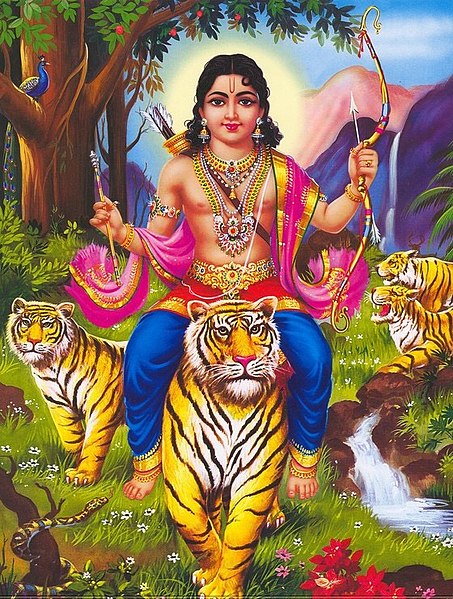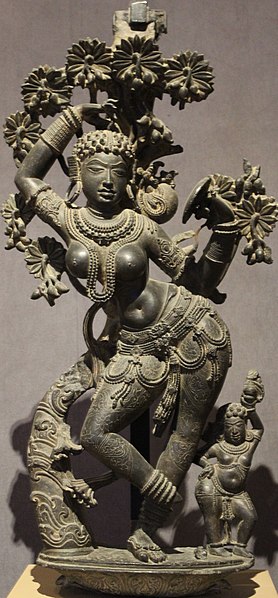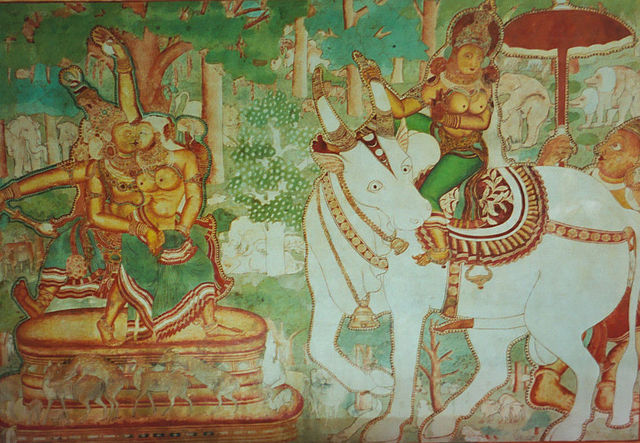Ayyappan, also known as Dharmasastha and Manikandan, is the Hindu deity of truth and righteousness. His worship is more prevalant in South India. Although devotion to Ayyappan has been prevalent earlier, his popularity rose in the late 20th century. According to Hindu theology, he is the son of Vishnu in the form of Mohini and Shiva thus representing a bridge between Shaivism and Vaishnavism.
Ayyapppan seated on a tiger
A painting of Ayyapppan in a seated yogic position
Ayyappan temple at Sabarimala
Vavar's mosque on the way to Sabarimala
Mohini is the Hindu goddess of enchantment. She is the only female avatar of the Hindu god Vishnu. She is portrayed as a femme fatale, an enchantress, who maddens lovers and demons, sometimes leading them to their doom. Mohini is introduced into Hinduism in the narrative epic of the Mahabharata. Here, she appears as a form of Vishnu following the Churning of the Ocean, a mesmerising beauty who distributes the amrita to the weakened devas (gods) and depriving it to the dominant asuras (demons), allowing the former to defeat the latter with their newfound immortality.
Sculpture of Mohini
Mohini distributing the Amrita to the Devas (left), while the Asuras look on
Bhasmasura-Mohini by Raja Ravi Varma. Bhasmasura (left) is about to place his hand on his head following the dancing Mohini (centre), as Shiva (right) looks from behind the tree.
A Mattancherry palace mural shows Shiva and Mohini in an embrace while Parvati seated on Nandi, the white bull, looks at them in distaste.








